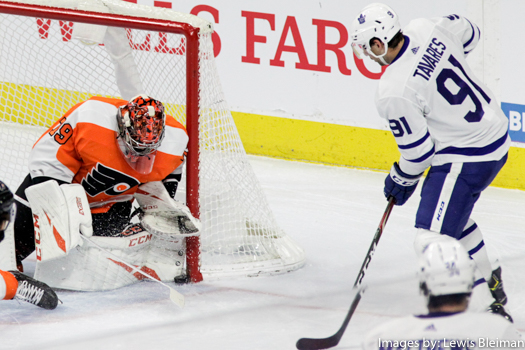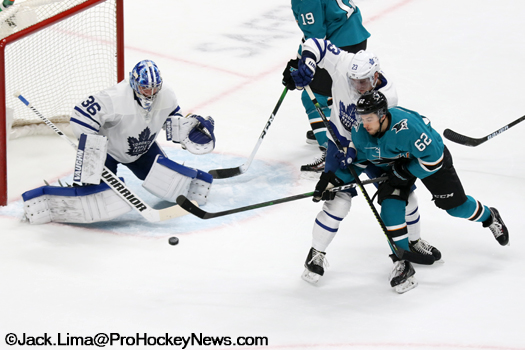Not since 1993 has a Canadian hockey club won the Stanley Cup. The Montreal Canadiens were the last to win the coveted silverware.
Since that accomplishment, nearly 30 years ago, the NHL has not been able to grace the Lord Stanley’s Cup with the team or players’ names from Canada.
It seemed that the 2022 Stanley Cup Playoffs would end with at least one club advancing to the Final. The Toronto Maple Leafs, Calgary Flames, and Edmonton Oilers were heavy favorites to make noise this post season.
The Maple Leafs, once again, bowed out in the first round, to the Tampa Bay Lightning.
The Flames lost in the second round to the Oilers, who then promptly lost in four games to the Colorado Avalanche in the Western Conference Final.
One member of the 1993 Canadiens team, Denis Savard, still has fond, even emotional memories of the Final win. The Canadiens beat the Los Angeles Kings that year for the Cup, and Savard spoke to NHL betting site Betway about the Canadiens win in ’93.
“When I talk about it now, I still have goosebumps,” Savard says. “It’s an amazing feeling. Especially being a kid that grew up in Montreal.
“Just to lift it – and it’s heavy, believe me. It’s the ultimate goal for any player to get to the final buzzer and to raise it up. It’s something that can never be taken away from you and something that as I watch the playoffs right now, it brings back a lot of great memories.
“That whole time, that whole summer was just incredible, just crazy. There were a lot of parties, I won’t lie to you, but rightly so. You can’t duplicate that, you can’t make that up.”
It was Savard’s lone Stanley Cup over a 17-year career. The series turned on an illegal stick challenge by the Habs’ coach, Jacques Demers, on the Kings’ defenseman Marty McSorley. The call was made, and the Kings were assessed a minor penalty. Montreal scored on the power play and won the game in extra time to tie the series, 1-1.
“That was a big, big step for us to go on and win the Cup,” admits Savard. “We had our eyes on two guys, Marty McSorley being one, and Luc Robitaille being the other.
“When you get to the last few minutes of a game and you’re playing with an illegal stick, you switch your stick, because you don’t want to get caught in a penalty.
“It was a gamble, and it turned out to be a good gamble for us. We were in a situation where we were desperate. We had no other thing we could do except somehow get a power play.”
Los Angeles was never able to get back on track and lost the series by a 4-1 count.
“LA played Toronto in seven games prior to the finals and it was a very physical series, very hard series. So, who knows?
“But being down two games going to LA, that’s very hard to do, to come back and win the series,” he says. “We probably wouldn’t have.
“I don’t know what the record or the history is as far as teams being down two and then going on the road for Game 3 and 4, but the odds wouldn’t have been with us, that’s for sure.”
The illegal stick challenge has been thought of as a cheap call, but Savard has other opinions.
“Obviously, you want to win the right way,” he says. “It’s not that we didn’t win the right way, it was just a rule. In those days, that’s just the way it was.
“We knew that as players. We had teammates that played with illegal sticks, no question about it. So, it could have been us.
“I’ll be greedy, I’m glad we won either way. It is what it is, and it worked out good for us.”
The 30-year absence from one of the rings on the Stanley Cup have been traced to any of a number of different reasons. The influx of players from outside North America has changed the face of hockey and the NHL since the mid-1990’s. There is no longer a limited pool of talent.
“It’s pretty incredible that it’s been so long,” he says. “That just tells you the depth of our league.
“You’ve got franchises now that came in a few years back and have made it to the Finals. It’s very tough to build a winner. It’s as simple as that.”
More importantly, some say, is the less attractive prospect of playing in Canada for Canadian dollars and not the stronger US currency.
“Players get a choice now,” he explains. “Being a free agent, they could go to Florida, play for the Panthers or for Tampa, you could go and play for Dallas.
“When Canadian teams get really close to getting there, and they need that free agent, in a lot of cases they don’t get them.
“They go with cities that are a little warmer for their families. Part of that has something to do with it, I think, free agent players choosing to go to other cities.”
Savard’s take on it the issue is less financial, and more about winning.
“I’ll give you an example, Toronto with [John] Tavares. He went and signed there thinking he could win a Cup,” he explains.

Carter Hart #79 of the Philadelphia Flyers makes a pad save against John Tavares #91 of the Toronto Maple Leafs
“With the Canadian teams, the closer they get to winning a Cup, free agents will go there. There is no question because the ultimate goal is to raise the Cup. It’s not a question of it just being Florida or Dallas.
“Toronto is not far off, they possibly could do it next year, or in the next two, three years. They have a great leader and a great player in Matthews, and a bunch of other stars.
“The best player in the world, Connor McDavid, is with the Edmonton Oilers and, sooner or later, if they surround him, they get him more help, there’s a chance that they could go on and win a few Cups in a row. That’s how good he is.”
Layer in the suggestion that expansion into less than traditional markets in the United States has attracted players to locations, and maybe not to the competitive franchises.
“I like [expansion] personally,” he admits. “I think the league has done a great job, not just with that, but changing the rules over the years. The salary cap has really created parity in the league.
“Vegas was in the Finals a few years ago, that’s a new team in the league. It brought a lot of attention, a lot of people wanted to watch that.
“With how the playoffs are structured now, you had the Rangers against Pittsburgh in the first round, you had the Battle of Alberta in the second. How much better could it get?
“I think that all the changes they’ve made, they’ve made for the better. Our league is very healthy. Crowds come to the games, we have so many superstars. Right now, it’s very attractive.”
Savard has not lost hope for Canada’s trams.
“Canada’s the game. Hockey is our game,” he says. “I don’t think it’s ever going away. Ever. Sooner or later, it’s going to happen.
“You look at all the Canadian teams right now, Edmonton is close, Calgary’s close, Toronto is very, very capable of winning it in the next two or three years. I think they’ve learned a lot over the last two years. It’s a learning process.

Center Connor McDavid (#97) of the Edmonton Oilers Goalie Brian Elliot (#37) of the Philadelphia Flyers
“I don’t think [the drought] is going to hurt our game at all. As long as the teams stay competitive, which they will, we’re going to be fine.”
If the Maple Leafs can win a first round series, they are deep enough to make a run in the post season. However, that is a mighty if. The Vancouver Canucks, Winnipeg Jets, and Ottawa Senators are vying the same talent north of the border as the rest of their brethren, and competing with the lucrative franchises in the US.
Visit the Betway Insider for the latest NHL picks.
From the original By Guy Giles
Sports writer who produces regular football and cricket tips, while also covering a range of other sports.



You must be logged in to post a comment.